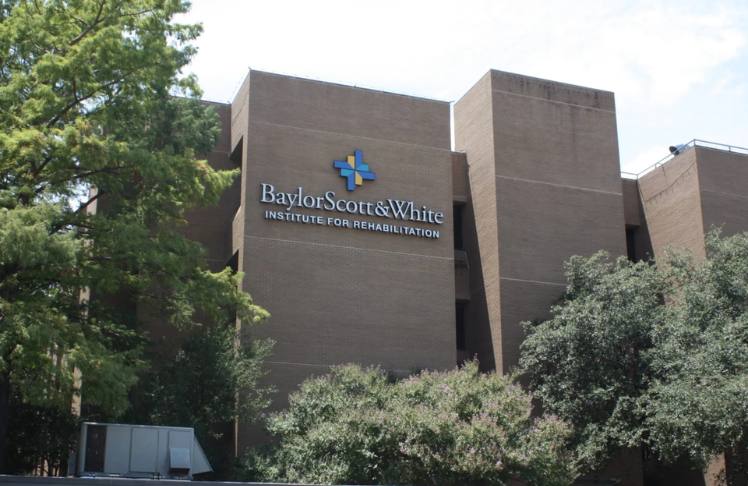
This post was originally published on Dallas Weekly
By Sam Judy
As Black and other non-white folk suffer poorer outcomes following a traumatic brain injury, this establishes a troubling correlation with a greater risk of homelessness for these demographics.
Homelessness has been steadily on the rise in the United States in the years following the start of the COVID-19 pandemic, with more than half a million Americans experiencing homelessness in the last year. As houseless neighbors become more commonplace, a higher prevalence of traumatic brain injury (TBI) in non-white demographics may leave them more susceptible to homelessness, research shows.
Possibly resulting from a blow or multiple blows to the head from a fall or an accident, TBI could be sustained through various circumstances, such as playing sports, a car accident, or an assault. Prompt care is crucial to limit the long-term effects of the injury, though it may take more than a year for an injury’s effects on brain function to be fully clear.
TBI can cause brain bleeds that require emergency surgery, but less severe forms of injury may simply require ongoing monitoring to ensure surgery isn’t needed later. Brain imaging is a typical method of identifying the location and nature of an injury in order to form a treatment plan.
According to the Brain Injury Association of America, Black folk seem to be at the greatest risk of experiencing TBI of any minority or non-minority group. This is due to several overarching factors established through existing findings. Black Americans are the most likely to sustain TBI as a result of a violent event and are only second to Indigenous American demographics in the percentage of TBI-related deaths.
Black Americans have the highest rate of TBI among a demographic’s total population (about 1 in 1000 people), but Indigenous Americans are most likely to die from TBI (almost 1 in 3 cases). Coming from a Hispanic background, regardless of race, sees increased rates of TBI. Source: Center for Disease Control, 2017
While Black Americans with mild-to-severe traumatic brain injuries experience recoveries consistent with non-Black groups at comparable rates of severity, they were found to be less likely to return to their lifestyle prior to injury. Specifically, maintaining employment was reported as a greater challenge to Black Americans living with TBI compared to other demographics.
Non-white women are also more likely to experience TBI as a result of domestic violence, as well. Studies show that Black and Indigenous women are both more likely to experience abuse within relationships without reporting it, leading to higher rates of assault, rape, or other forms of physical violence perpetrated by a partner. These demographics suffer at a rate of 30% to 50% higher than their white, Hispanic, and Asian counterparts.
As TBI patients often suffer the long-term effects of their injury, such as swift changes in mood, anger, and violent outbursts, these behaviors complicate relationships with others and leaves affected individuals isolated. Likewise, TBI has a strong correlation with homelessness, holding such a deep connection that researchers are unsure which is the more prevalent catalyst than the other. Accordingly, data shows that homelessness itself also puts individuals at greater risk of suffering TBI, as 7 to 11% of North Americans suffer TBI in their first year of homelessness.
Both Black Americans and Indigenous Americans are similarly overrepresented in the homeless population at rates of 3 to 1 and 5 to 1, respectively. Data from a study published by Lancet Public Health shows that over half of all homeless individuals have suffered TBI, weighing compiled metrics across the US, Canada, the UK, Canada, Japan, South Korea, and Australia. Each issue compounds and precipitates the other to both a ratio and a degree that are hard to track, though a significant connection between these two factors remains glaring.
This context renders homelessness a public health issue as much as it is a social issue. Hospitals and medical centers such as Baylor Scott & White Institute of Dallas provide specialized rehabilitation services for those suffering from TBI. Ranked 14th nationally, Baylor Scott & White reports a low rate of readmission for patients, however, lack of necessary follow-up care is noted as a major concern for Black TBI patients.
As lower rates of rehabilitation could be attributed as a major cause of poorer psychosocial, functional, and employment-based outcomes in Black Americans that have sustained TBI, accessibility to healthcare is highlighted as a significant factor. Black Americans are uninsured at a higher rate than their white counterparts, as the uninsured rate is 10.8% for Black folk compared to 7.2% for whites. Even when Black people do receive medical care, it is often lower quality than what can be expected by white folk.
As 7 out of 10 Black Americans attest to poorer healthcare treatment, the demographic is also more likely to report stress regarding the inability to pay medical bills. Medical debt is listed as a major contributor while potentially also keeping Americans in the cycle of homelessness for a longer period of time. Working-class Black Americans who suffer TBI are effectively forced deeper into poverty through medical debt taken on in seeking rehabilitation if not the challenges presented in going untreated.
Observations on potential outcomes of Black Americans with TBI convey several pipelines to homelessness for affected groups. As poverty is on the rise due to several economic factors in the United States, vulnerabilities across demographics in the working class become more apparent. Hitting Black Americans the hardest, the economic crisis continues to spur a greater public health disaster among non-white demographics.
If you or a loved one suffers from the effects of TBI and are seeking help or resources, visit https://www.biausa.org/find-bia/states/texas/resources-support
The post Black Americans and the Link Between Traumatic Brain Injury and Homelessness appeared first on Dallas Weekly.















